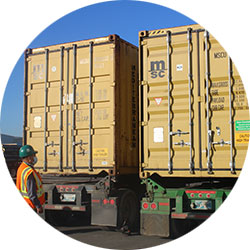
- Another major ocean shipping disruption is underway
- This affects global supply chains
- Rising costs and delays result
- Ongoing high demand, low supply situation
There is currently a disruption in ocean shipping, which has been more significant than the Suez Canal backup in March. The Port of Yantian in China is responsible for roughly 25% of ocean-shipped Chinese goods to the U.S., and it’s now operating with a 16-day backlog due to a Coronavirus outbreak. This is causing a massive logistical challenge for shippers and could be leading to a crush of arrivals at receiving ports.
Measures such as transferring goods originally meant for loading at Yantian to other ports are being taken, but this is costly and further ties up trucking freight. On top of this, the busiest ports in the U.S., like Los Angeles, are still working with long unloading delays, and alternative ports like Oakland are quickly becoming just as backlogged.
Delays in loading and unloading at ports tie up shipping capacity, and container availability also drives up cost. In addition, trade imbalances from previous Covid-19 disruptions, like countries opening and closing at different times and affecting the production and demand for goods, have created a shortage of empty containers. This further hinders capacity while production looks to ramp up to meet rising demand in recovering economies.
Shipping delays cause delays of globally sourced steel pipe products shipped in containers. A lack of capacity creates more demand, less supply, and long waits. Because of this, other parts of the global supply chain are affected, like the availability of raw materials, truck freight, and labor shortages.
Merfish United’s business model – which enables wholesalers to buy a broad array of pipe products from one supplier, at low minimums for FFA – is designed for low and unpredictable volume scenarios, exactly like the one we are in right now. Call your representative now to schedule your next weekly delivery of mix-and-matched pipe products.


